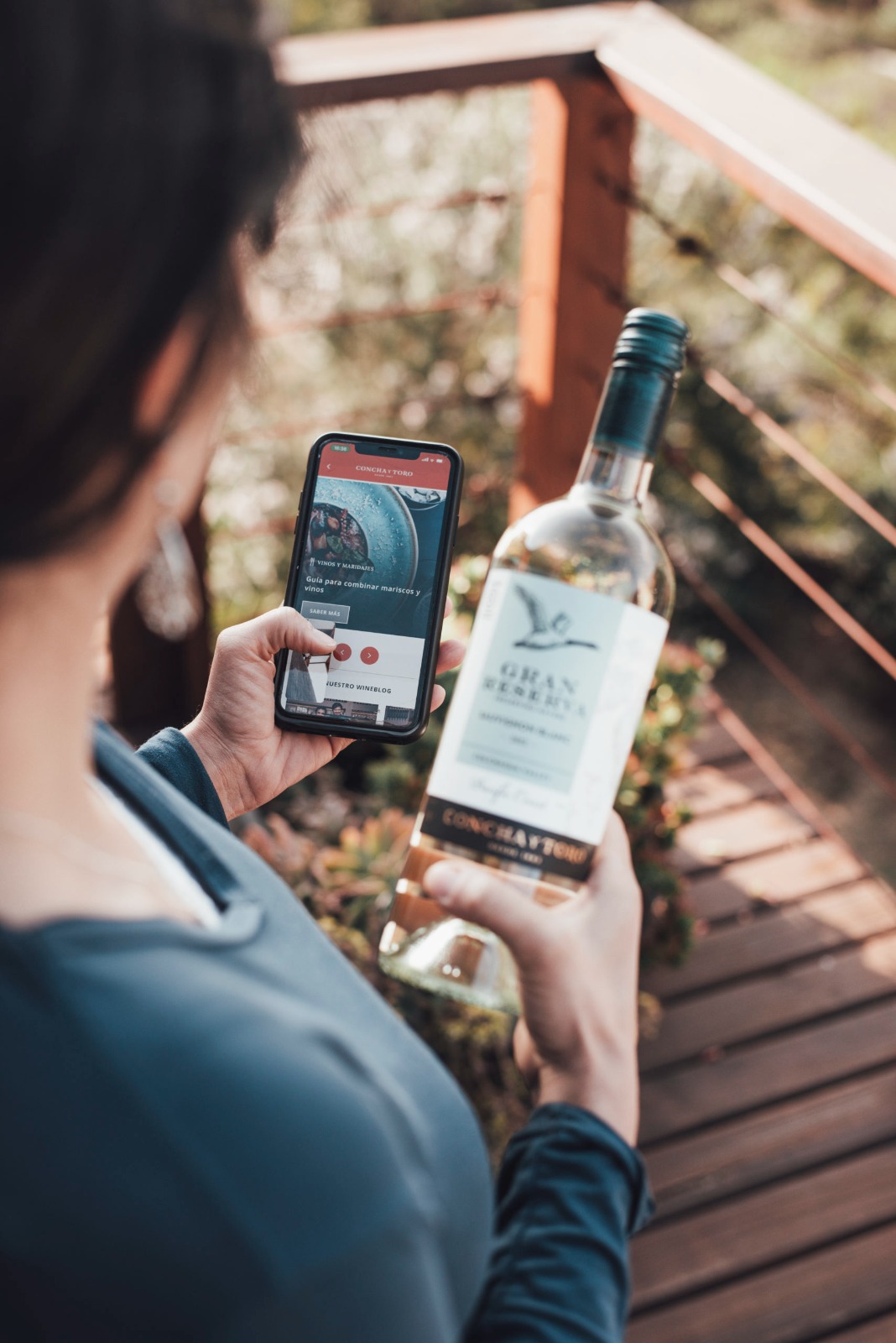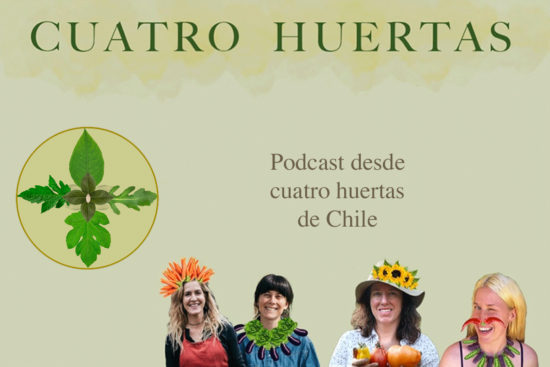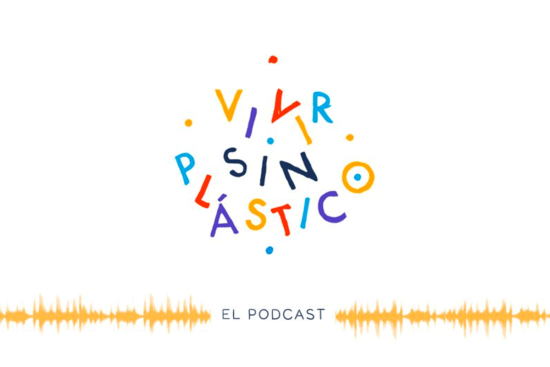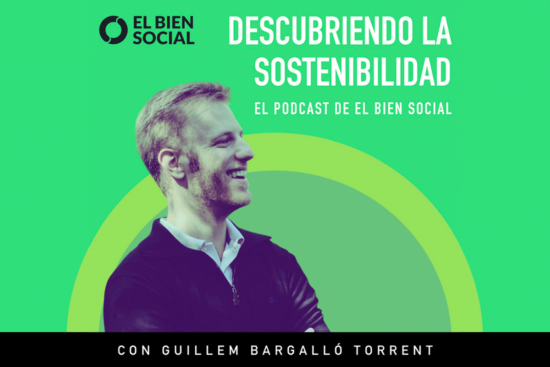Three Podcasts helping preserve nature


In the new and diverse parallel world of podcasts, the emergence of content related to environmental care and more conscious lifestyles is on the rise. If you also want to participate in change, put on your headphones and enjoy three programs that will not leave you indifferent.

This podcast is an entertaining conversation that brings together four women gardeners (@kate.la.farmer, @winiwalbaum, @prabhita, and @lacook_a on Instagram) who are gardening in different parts of Chile. They joined together to accompany auditors in their gardening journey with their own experience, encourage more people to produce their food as they do, and relate more closely with nature. They started in November 2021 and already have 34 episodes (about an hour each) where they talk about plants, gardening techniques, seeds, winter solstice, harvests, and many other topics. From time to time, they also have exciting guests in a section called Human Encounters, where, for example, they interviewed La Mesa restaurant’s head chef, Alvaro Romero, to talk about the concept “from garden to table.” A refreshing conversation that you should listen to if you are planning or have already started your vegetable garden. We invite you to put on your headphones and sit outdoors with a Gran Reserva Sauvignon Blanc glass.
You can listen to them on Spotify (https://open.spotify.com/show/6Zi0YOtdEJtBKkML4nN3at ) or Youtube (https://www.youtube.com/@cuatrohuertas ) and also follow them on their Instagram @cuatrohuertas.

In the summer of 2015, Patricia Reina proposed to Fernando Gómez to “live without plastic.” “We started by observing our garbage, and it was a slap of reality,” they tell on their website, www.vivirsinplastico.com But after a short time, avoiding plastic became a routine, and it wasn’t long before they achieved their goal. They became a reference in the zero waste movement without looking for it and even published a book titled Vivir sin plástico* (Living without plastic). In August 2021, their podcast was born, where they interview experts on different topics ranging from recycling, waste management, and responsible consumption to cosmetics, energy, and food. This podcast addresses and welcomes any sustainability-related issue, which seeks to encourage more people to avoid plastic. If you have a similar love for the planet, we invite you to uncork a bottle of Gran Reserva Carmenère, put on your headphones, and listen to one of their 26 episodes here: https://open.spotify.com/show/2wMb3fEgXHFgbOYvrliyUZ. You can also follow them on their Instagram @vivirsinplastico.
*https://www.planetadelibros.com/libro-vivir-sin-plastico/290362)

Guillem Bargalló Torrent was shocked when on April 13, 2013, he saw learned about the collapse of an 8-story building in Dhaka, Bangladesh’s capital city. A total of 1,124 people had died, and the first thing that crossed Guillem’s mind was, “I’m wearing clothes they made.” That collapse triggered a change of conscience for Bargalló, who promised himself not to continue feeding a system in which people’s and the Earth’s health is at risk. That’s how he created El Bien Social (www.elbiensocial.org), a platform to give a voice to those building a better world- a place where sustainability and business come together. That world is revealed in The Social Good’s podcast, Discovering Sustainability, where Guillem interviews leading social entrepreneurs and experts worldwide about how they have created successful sustainable businesses to inspire others. To date, they already have 48 episodes of about an hour, which we invite you to enjoy with a glass of wine made under the same criteria of sustainability, Gran Reserva Cabernet Sauvignon. You can listen to it here https://open.spotify.com/show/3gondxNVW9RaHJDmadeHBR and follow them on their Instagram @elbiensocial.
We comply with the highest standards of verified social and environmental performance, transparency, and legal responsibility to balance benefit and purpose.
We adopt an Impact Business Model, creating beneficial links between business, community, and environment.
The Gran Reserva vineyards are an important part of the project to conserve native forest areas and protect local biodiversity. Our native forests have the ability to retain rainwater and control the kind of climate change that results from water shortages.
We take care of 1,432 hectares of protected forests and, on average per vineyard, a total of 105 species of fauna and 48 species of registered flora.
Our effort to preserve nature begins with responsible water consumption. 99% of the water we use comes from surface and subterranean sources.
Our vineyards are drip irrigated, which translates to a 90% efficiency on water consumption, and over the past 3 years, we’ve reduced our water footprint by 10%.
All of our winemaking processes require the use of energy. Our choice to invest in clean, renewable energy reflects our desire to co-create a sustainable planet for the future.
100% of the electricity used to make the wines in the Gran Reserva collection come from renewable sources, including solar energy.
Concha y Toro has been certified under the Wines of Chile Sustainability Code since 2012, which means that our vineyards are officially recognized as sustainable vineyards.
The wines in our Gran Reserva collection are crafted entirely from estate-owned grapes in sustainably managed vineyards.